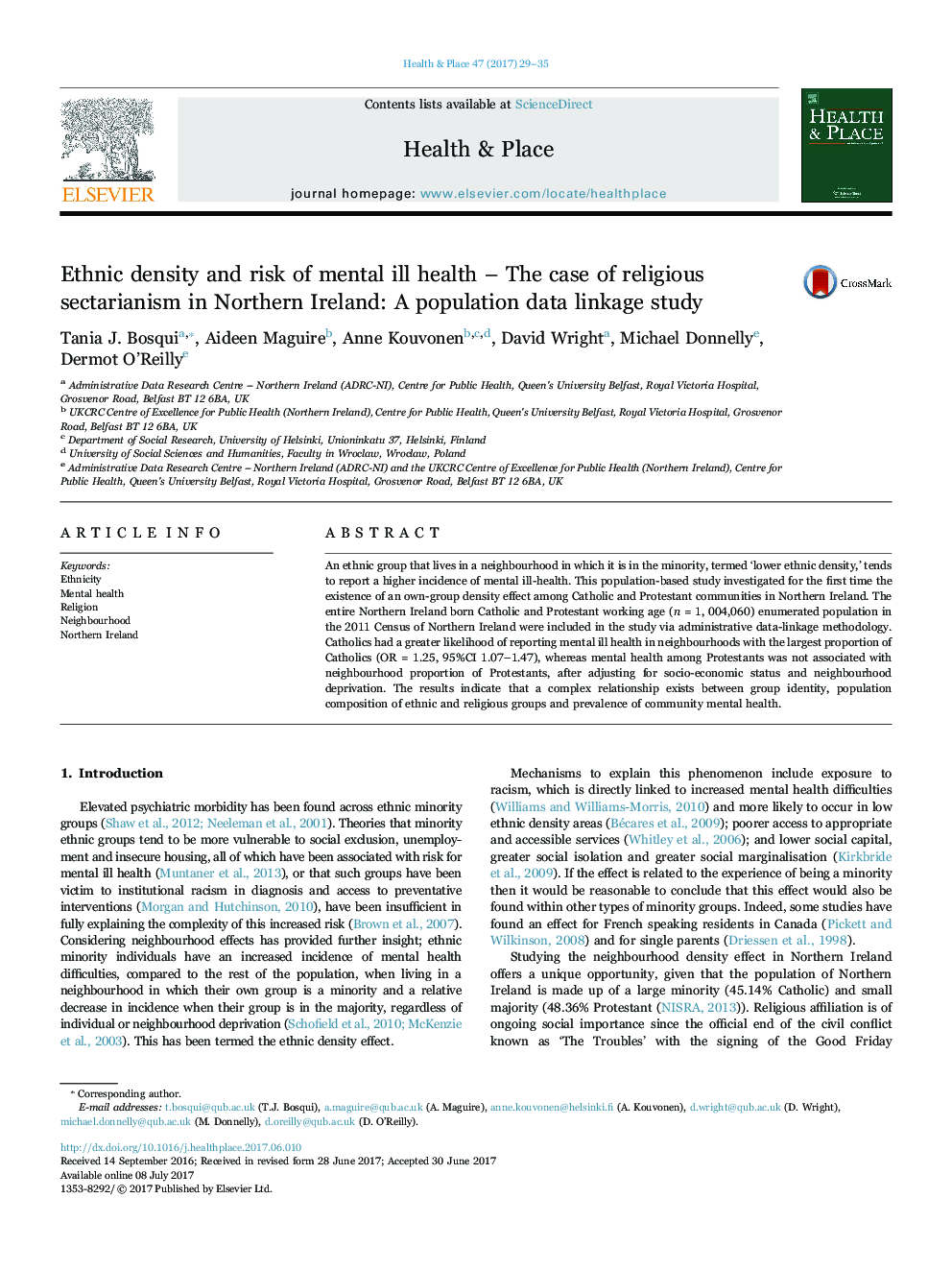| Article ID | Journal | Published Year | Pages | File Type |
|---|---|---|---|---|
| 5114769 | Health & Place | 2017 | 7 Pages |
Abstract
An ethnic group that lives in a neighbourhood in which it is in the minority, termed 'lower ethnic density,' tends to report a higher incidence of mental ill-health. This population-based study investigated for the first time the existence of an own-group density effect among Catholic and Protestant communities in Northern Ireland. The entire Northern Ireland born Catholic and Protestant working age (n = 1, 004,060) enumerated population in the 2011 Census of Northern Ireland were included in the study via administrative data-linkage methodology. Catholics had a greater likelihood of reporting mental ill health in neighbourhoods with the largest proportion of Catholics (OR = 1.25, 95%CI 1.07-1.47), whereas mental health among Protestants was not associated with neighbourhood proportion of Protestants, after adjusting for socio-economic status and neighbourhood deprivation. The results indicate that a complex relationship exists between group identity, population composition of ethnic and religious groups and prevalence of community mental health.
Related Topics
Health Sciences
Medicine and Dentistry
Public Health and Health Policy
Authors
Tania J. Bosqui, Aideen Maguire, Anne Kouvonen, David Wright, Michael Donnelly, Dermot O'Reilly,
